Sudan timeline July-September 2023: Sudanese ‘in survival mode’
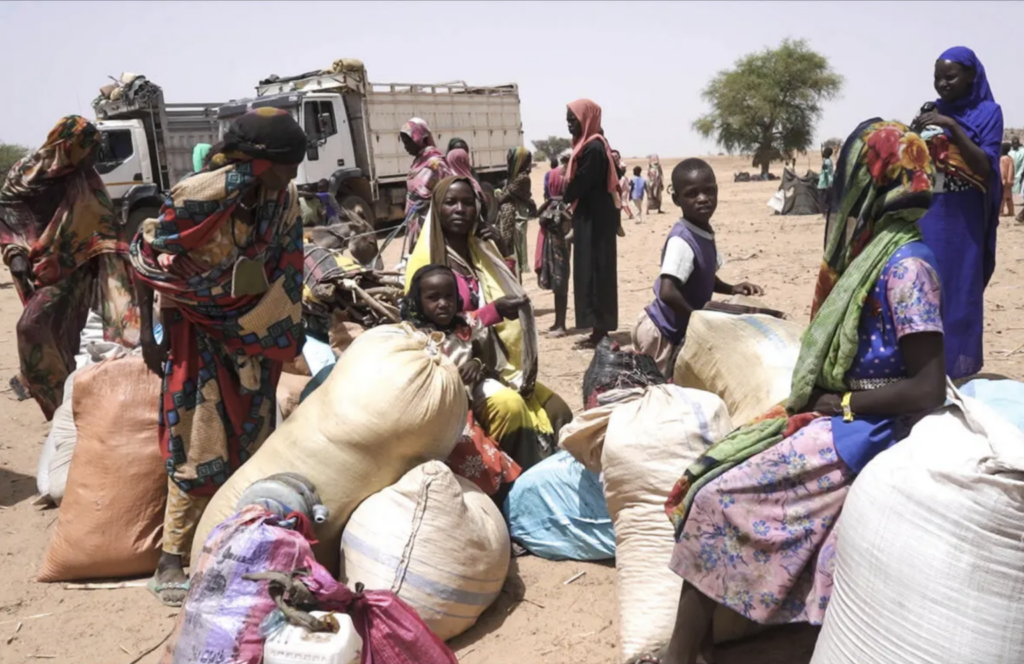
Darfuri refugees transported from the Chad-Sudan border to Gaga camp in eastern Chad (File photo: Insa Wawa Diatta / UNHCR)
Fighting that erupted between the Sudan Armed Forces (SAF) and the Rapid Support Forces (RSF) on April 15 this year, and escalated into full-blown conflict, has intensified in Khartoum, El Obeid, and Nyala. About half of the population of Sudan is in urgent need of humanitarian aid and protection by July. Women and girls are being sexually assaulted and raped in alarming numbers. Summits in Addis Ababa and Cairo discussed ways to end the violence in the country, but do not seem to have much impact on the warring parties. Pharmacists warn that Sudan’s medicine supply ‘is in serious danger’ of running out.
Amid the ongoing violence, thousands of corpses are reportedly decomposing in the streets of the capital, raising concerns about a cholera outbreak. Measles is also spreading. Nearly 500 children died of hunger since April. The violence in Darfur and Kordofan continues. El Burhan leaves the army command in Khartoum and flies to Cairo where he meets with Egyptian President Abdel Fattah El Sisi. El Burhan, as head of the Sovereignty Council, dissolves the RSF, and forms a commission of inquiry into crimes committed by the militia. The first summit of Sudan’s neighbouring countries ‘Ministerial Mechanism’ concludes in the Chadian capital N’Djamena with an agreement on an action plan for ‘a final ceasefire’.
By September, there is still little sign of SAF-RSF hostilities abating. Dozens of people are killed by airstrikes. New armed groups appear in Khartoum, fighting alongside the army against the RSF. UN Secretary-General António Guterres warns of the danger of all-out civil war in Sudan. El Burhan continues his tour tof neighbouring countries. UN Special Representative for Sudan Volker Perthes resigns, following repeated pressure from the Sudan junta to do so. The UN Under-Secretary-General for Political and Peacebuilding Affairs, international organisations but also Sudanese farmers and tribal leaders warn of an imminent famine in Sudan if political inaction persists. Malaria, dengue fever, and cholera are rapidly spreading in the country, as Medics ‘sound the alarm’ on the rapid spread of cholera, dengue fever, and measles.
July: The armed conflict between the Sudanese army and the RSF escalates in Khartoum, Kordofan, and Darfur. In Darfur, more ethnically motivated attacks by RSF and allied gunmen on civilians are reported. Several mass graves are found in the West Darfur capital El Geneina. About half of the population of Sudan is in urgent need of humanitarian aid and protection. Women and girls are being sexually assaulted and raped in alarming numbers. Summits in Addis Ababa and Cairo discuss ways to end the violence in the country, but do not seem to have much impact on the warring parties. Pharmacists warn that Sudan’s medicine supply ‘is in serious danger’.
July 1: An unprecedented pace of fighting and ethnic targeting are reported from Khartoum. Resistance committees in Khartoum North blame the RSF for the dire humanitarian situation in the area.
July 2: Sudanese developers have launched online apps to assist volunteers and those in need of help in their war-torn country.
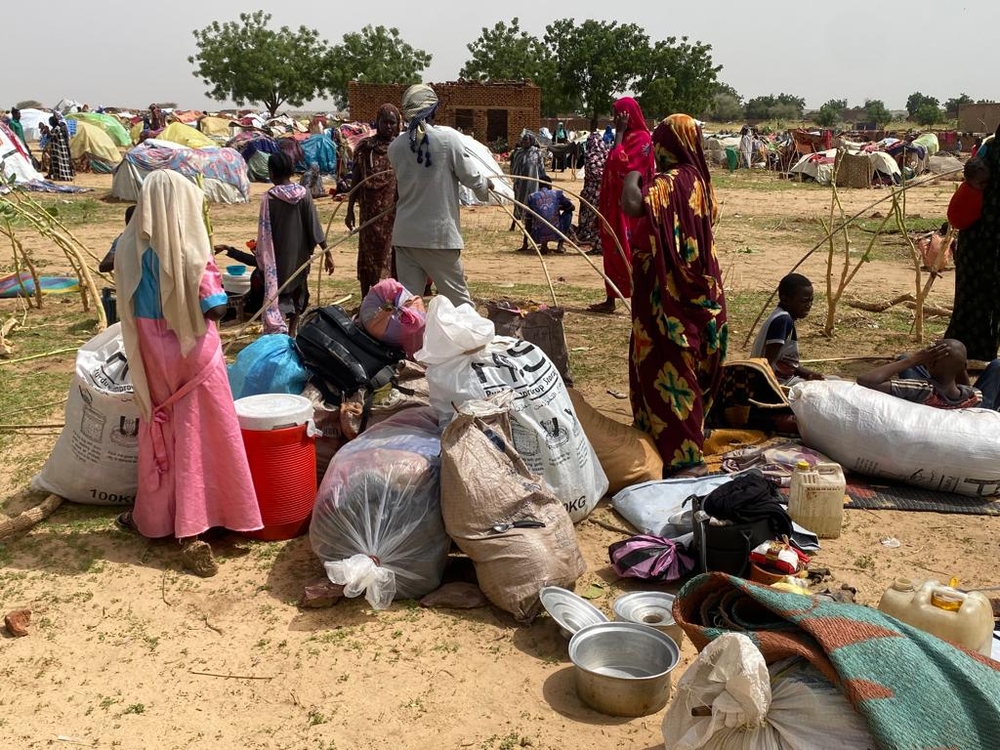
July 3: West Darfur refugees in Chad say that the RSF deliberately murdered children and exterminated entire families in El Geneina on ethnic grounds. A native administration leader says that ethnically-motivated attacks in the city continue. Seven tribal leaders in South Darfur announce their support for the RSF. The daily military spending during the war currently amounts to ‘half a billion dollars’.
July 4: Renewed SAF-RSF fighting erupts in Nyala, capital of South Darfur. Dozens more die in battles in Khartoum. Alarming testimonies of alleged RSF lawlessness emerge from North Darfur. Kidnapping and protection rackets are rife in the region. The UN High Commissioner for Refugees (UNHCR) condemns the killing of 28 refugees in Khartoum. South Sudan’s President Salva Kiir Mayardit says he has persuaded the Sudan People’s Liberation Movement-North under the leadership of Abdelaziz El Hilu (SPLM-N El Hilu) not to attack army sites in the Nuba Mountains and Blue Nile region.
July 5: Top UN officials sound the alarm at the spike in gender-based violence in Sudan. Sudanese journalists condemn ‘continued press attacks’, which often happen because of suspected tribal and partisan alignment with the SAF or RSF. The UN Office for the Coordination of Humanitarian Affairs (OCHA) and the European Union call for humanitarian intervention in Sudan. More than 49 women-led groups unite to form the Peace for Sudan Platform.
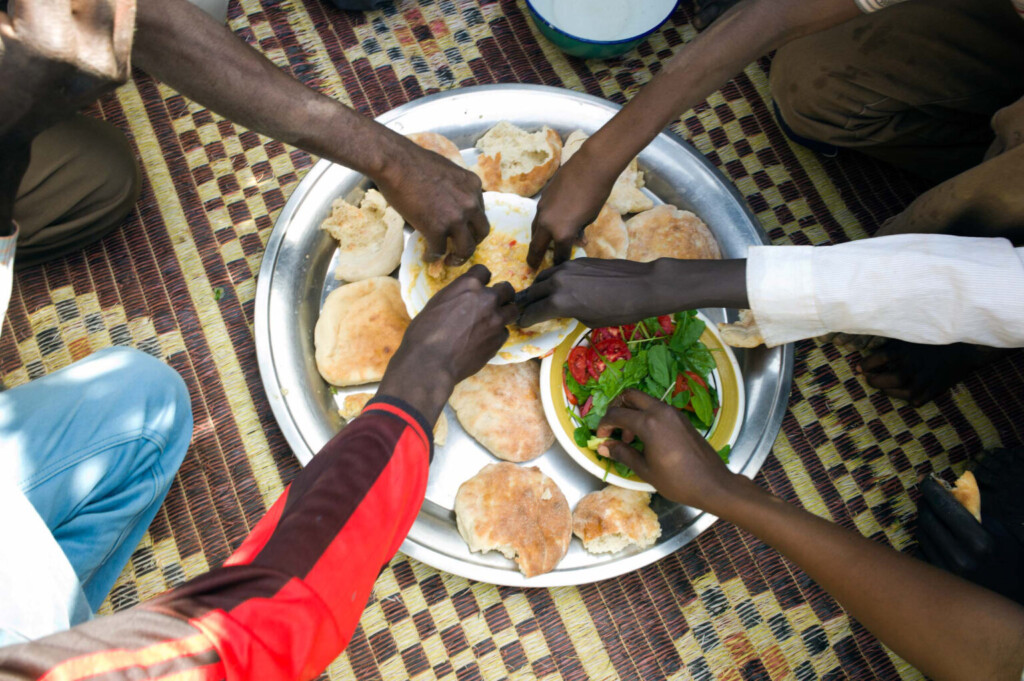
July 6: Dozens of people are killed in SAF-RSF clashes in Kass in South Darfur. The Arab League warns of the impact of the war on the food security in the region.
July 7: Fierce battles continue in Khartoum, North Kordofan, and Darfur. The International Organisation for Migration (IOM) estimates that half of the population of Sudan is in urgent need of humanitarian aid and protection. Girls are being sexually assaulted and raped by members of both warring parties in alarming numbers.
July 8: The Sudanese Journalists Syndicate reports several killings, raids, and threats against reporters last month.
July 9: The UN secretary-general warns of an ‘impending civil war’. Dozens of people are killed by the fighting in Khartoum, South Darfur, and North Kordofan. In Nyala, youths are liquidated, reportedly on ethnic grounds. At least 37 people are killed in airstrikes on Omdurman. Heavy fighting continues in Zalingei and Kass in Darfur and in the North Kordofan capital El Obeid. Residents chase RSF troops out of Bara town.
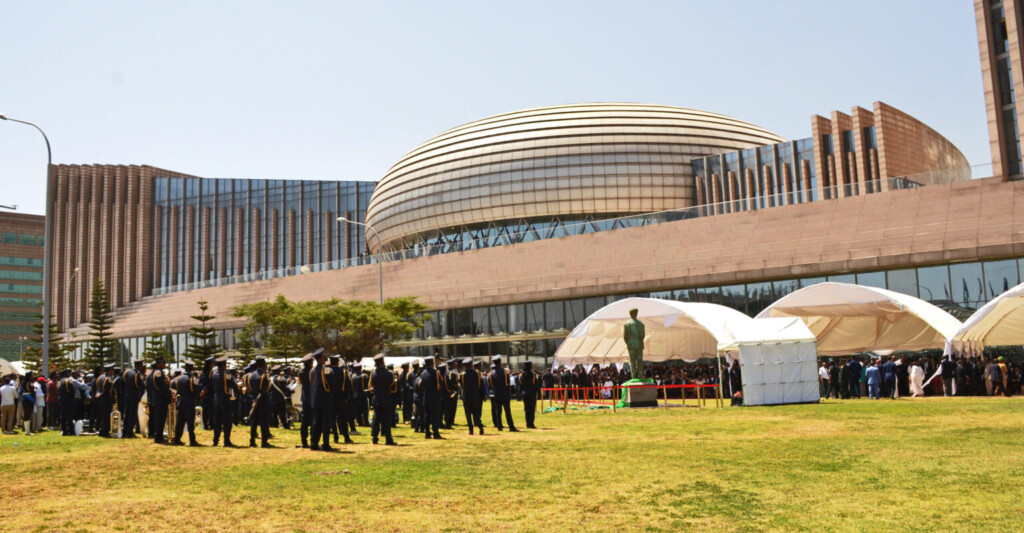
July 10: A summit in the Ethiopian capital Addis Ababa discusses the roadmap developed by the Horn of Africa’s Intergovernmental Authority on Development’s (IGAD) to end the war in Sudan. Military Intelligence continues to detain critical voices. The Sudanese Civil Aviation Authority extends the closure of the country’s airspace until July 31. Sudanese curators and other creatives launch a solidarity campaign for artists.
July 10: The SPLM-N El Hilu launches new attacks on army sites in Blue Nile region and South Kordofan. The SAF boycotts the meeting of the IGAD Quartet (Kenya, Djibouti, South Sudan, Ethiopia) in Addis Ababa. Army recruits receive military training in the dozens of newly established Pride and Dignity camps in the north and east of the country.
July 11: Sudan’s Foreign Affairs Ministry rejects the IGAD proposal to deploy East African troops in the country. Human Rights Watch (HRW) accuses the RSF and allied Arab gunmen of committing grave human rights violations in Misterei, West Darfur. The Darfur Bar Association will investigate reports about women slave markets in North Darfur. Armed men attack a journalist in Omdurman.
July 12: The UK sanctions six companies reportedly belonging to SAF and RSF commanders.
July 13: The summit in Cairo, attended by leaders of Sudan’s seven neighbouring countries, decides on a ‘ministerial mechanism’ aimed at bringing an end to the war in the country. The Office of the UN High Commissioner for Human Rights (OHCHR) calls for an investigation into a mass grave found in West Darfur. The International Criminal Court (ICC) will investigate attacks on civilians in Darfur since the war erupted on April 15. Kadugli, capital of South Kordofan, experiences a cautious calm after fierce fighting between the SAF and SPLM-N El Hilu.
July 14: The UN Food and Agriculture Organization (FAO) has started with the distribution of 10,000 tons of seeds to farmers in Sudan.
July 15: The army leadership seems to be open to new negotiation initiatives by the US-Saudi mediation in Jeddah.
July 16: RSF take control of Kass in South Darfur. Army forces clash with the RSF and SPLM-N El Hilu in the Nuba Mountains.
July 17: Heavy fighting is reported from various parts of Khartoum. Fleeing Sudanese encounter challenges at the Egyptian border and beyond. The economic losses caused by the ongoing war are roughly $100 million per day, while the value of goods plundered is estimated at $40 billion.
July 18: Several power and water stations in Khartoum are unable to operate due to the war. The Sudanese Trade Union Front (TUF) demands the Finance Ministry to pay the delayed salaries to the civil servants in the country. Emergency Lawyers accuse Military Intelligence in Merowe, Northern State, of torturing a political activist. People in Nyala, South Darfur, say they expect famine in the region.
July 19: At least 16 mosques have been damaged or destroyed and several churches have been plundered and occupied since April 15, says the ACJPS. Darfur refugees in eastern Chad are facing hunger.
July 20: An unknown number of people are killed during SAF-RSF battles in Khartoum and El Obeid. More rape cases are reported by the Ministry of Social Affairs. According to prominent opposition leader Siddig Tawir, Sudan’s FA Ministry “is run by members of the dissolved National Congress Party (NCP) who are supporting the war”. The UK announces new Sudan sanctions, targeting ‘fronts’ of Russia’s Wagner group.
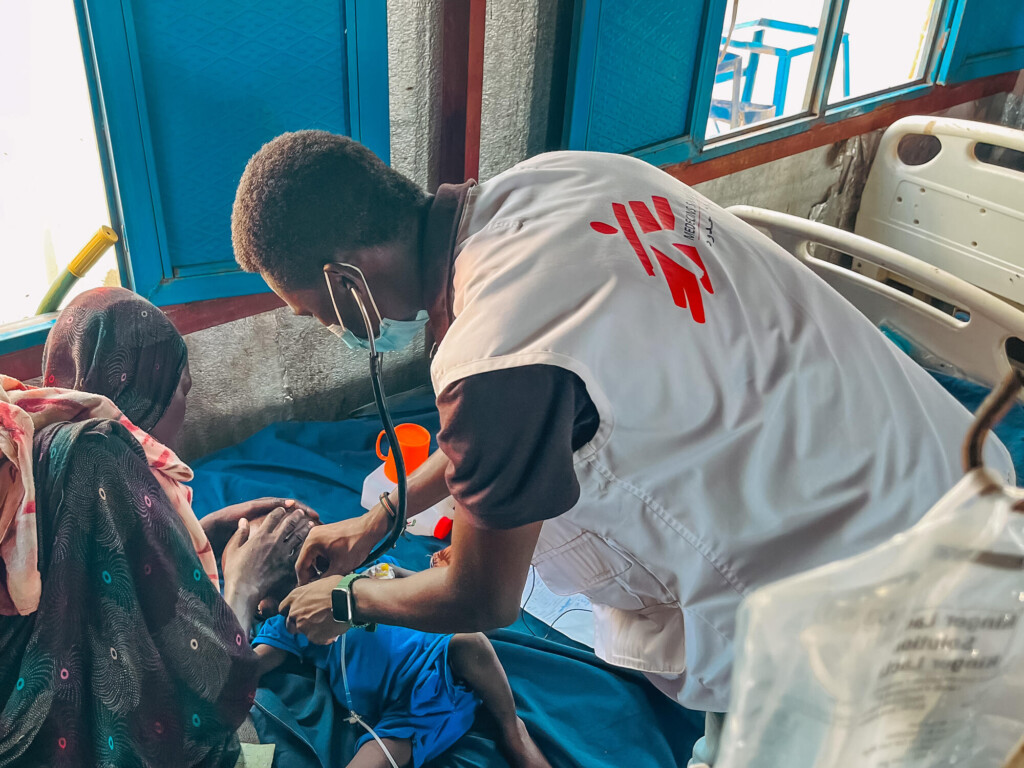
July 21: The International Crisis Group (ICG) sees “a narrow window for dialogue” between the warring parties. Médecins Sans Frontières (MSF) demands safety guarantees after its staff is attacked in Khartoum.
July 22: Sudanese economists expect the nation’s banking system to collapse. SAF-RSF fighting continues in El Obeid. RSF troops clash with Kababish tribesmen in North Kordofan, leaving dozens dead. The RSF claims that hundreds of army troops joined its ranks in East Darfur. Activists, politicians, and rebel leaders will meet in Togo to discuss an action plan to prevent ‘a full-blown civil war’ in Darfur.
July 23: Financial difficulties brought on by the war bring fears of a ‘failed agricultural season’.
July 24: The Ombadda Emergency Room in Omdurman accuse the SAF of escalating its shelling in residential neighbourhoods. People from Darfur say that the action plan agreed on in the meeting in Togo will ‘whitewash RSF’s war crimes’. Leaders of the mainstream Forces of Freedom and Change (FFC-Central Council) meet in Cairo.
July 25: RSF soldiers reportedly continue their killing, robbing, and raping of people in areas under their control. The FFC-CC proposes to form a ‘nationwide front to stop the war’, while four ‘conservative’ political alliances call on Gen El Burhan to form an interim government as soon as possible.
July 26: Medicines are almost depleted in Darfur, as the war enters its 100th day. RSF and allied gunmen take control of Sirba in West Darfur and prevent people from leaving the town. Fierce clashes and airstrikes are reported from Omdurman and Khartoum North. RSF troops continue harassing people in the capital. SAF leaders return from the US-Saudi mediation platform in Jeddah to discuss ‘crucial points that impede reaching an agreement with the RSF’.
July 27: More people flee Nyala in South Darfur after heavy fighting resumes in the city. Battles continue in Khartoum. A military expert expects the war will end ‘within three months’. Emergency Lawyers and ACJPS accuse both warring sides of widespread human rights violations. Representatives of Sudanese political groups meet at the EU headquarters in Brussels to discuss the possibilities for ‘a peaceful future for the country’. MSF appeals to Sudan health authorities to expedite measles vaccines. The World Health Organisation (WHO) warns of dire health conditions for Darfur children in refugee camps in eastern Chad.
July 28: The Sudan Farmers Alliance says that the ongoing SAF-RSF battles pose a grave threat to the production of vital crops during the current agricultural season.
July 29: SPLM-N El Hilu combatants shell parts of Kadugli, capital of South Kordofan, whilst the army loses terrain in Dalami.
July 30: The RSF are accused of forcibly displacing people in old Omdurman. Gunmen are still killing and plundering in Sirba, West Darfur. Pharmacists warn that Sudan’s medicine supply ‘is in serious danger’.
July 31: People who managed to flee Sirba in West Darfur speak of ethnic cleansing. Fighting continues in Khartoum. Several aid organisations leave conflict zones in the country.
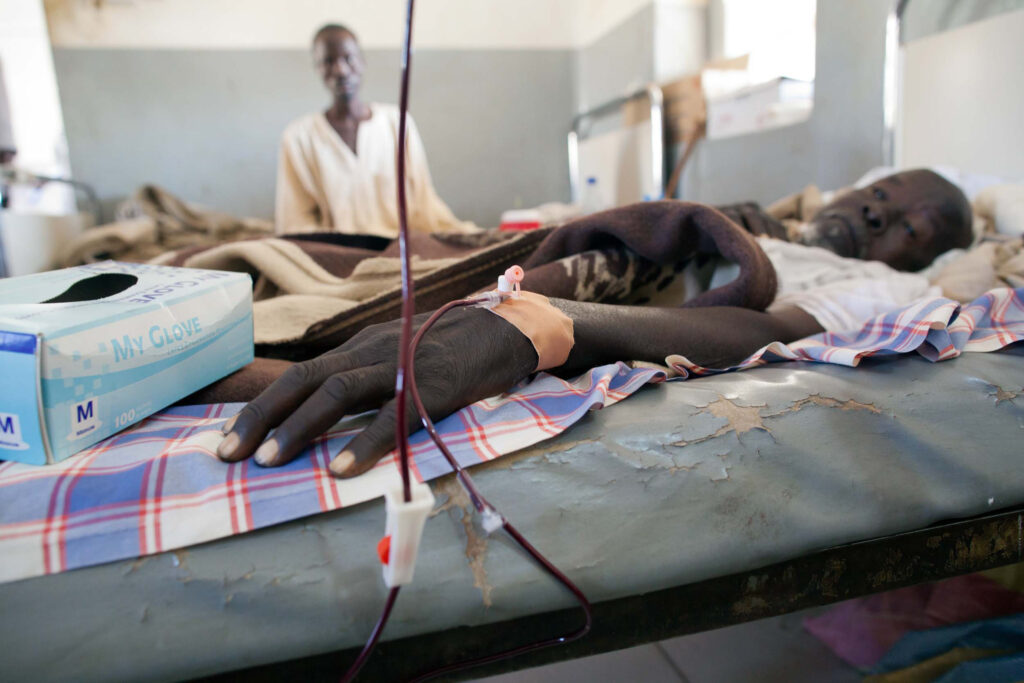
August: SAF-RSF fighting in Khartoum further intensifies. Thousands of corpses are reportedly decomposing in the streets of the capital, raising concerns about a cholera outbreak. Measles is also spreading. Nearly 500 children died from hunger since April. The violence in Darfur and Kordofan continues. After ethnically motivated attacks on El Geneina, West Darfur, in previous months, Zalingei, capital of Central Darfur, falls prey to similar violence. More Darfuris flee to Chad. El Burhan leaves the army command in Khartoum, and flies to Cairo where he meets with Egyptian President Abdel Fattah El Sisi. Amnesty International reports extensive war crimes in Sudan. El Burhan, as head of the Sovereignty Council, dissolves the RSF, and forms a commission of inquiry into crimes committed by the militia. The first summit of Sudan’s neighbouring countries ‘Ministerial Mechanism’ concludes in the Chadian capital N’Djamena with an agreement on an action plan for ‘a final ceasefire’.
August 1: SAF-RSF clashes are reported from Um Rawaba, North Kordofan. Fighting persists in large parts of Khartoum. The public prosecution in Kassala issues arrest warrants against five prominent members of the ousted Al Bashir regime. Sudan’s senior public prosecutor files criminal cases against the RSF for enforced disappearances and sexual assaults.
August 2: SAF denies reports of a new ceasefire agreement with the RSF. Nearly four million people have fled their homes in Sudan so far. The UN Integrated Transition Assistance Mission in Sudan (UNITAMS) says it is gravely concerned about the violence in Darfur.
August 3: Amnesty International reports ‘extensive war crimes’ in Sudan. UNHCR and the government of Chad are moving thousands of refugees from Darfur from border areas to camps.
August 4: At least 24 million people across Sudan require aid. The majority is facing severe hunger. The RSF claims ‘full control’ of Central Darfur. Human Rights Watch (HRW) reports ‘massive destruction’ in Sirba, West Darfur, in July.
August 5: The Darfur Bar Association accuses RSF and Military Intelligence of targeting lawyers.
August 6: The Sudanese air force attacks the Republican Palace in central Khartoum. Six people are killed in army attacks on RSF sites in Omdurman. A South Darfur women organisation reports 103 rape incidents in South and West Darfur since April 15. El Burhan forms a commission of inquiry on war crimes. The Communist Party appeals to “the tribes and people of Sudan” to resist recruiting calls from either the RSF or the SAF.
August 7: The Sudanese air force continues to bombard multiple areas of Khartoum. Residents of Abrof in Omdurman are forcibly evacuated by the army and the RSF. The first meeting of the Ministerial Mechanism of Sudan’s neighbouring countries concludes in the Chadian capital N’Djamena with agreement on a three-part action plan for ‘a final ceasefire’.
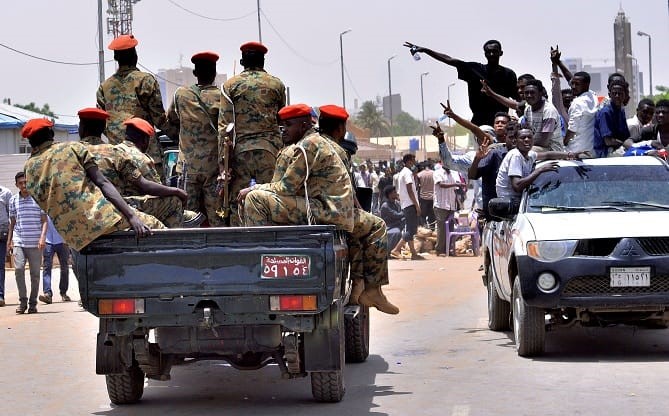
August 8: Fierce fighting in Omdurman, sister city of Khartoum, claims at least 20 lives. The Sudanese Journalists Network (SJN) is gravely concerned about the increasing number of RSF assaults against professionals and activists. Save the Children warns of a cholera outbreak in Khartoum, as ‘thousands of corpses are decomposing in the streets’. Medical supplies are in critically short supply in Nyala. The public prosecution in both Kassala and in El Gedaref in eastern Sudan dismissed charges against Islamists allied with the defunct Omar Al Bashir regime.
August 9: UN Special Representative Volker Perthes is prevented from delivering his regular brief to the UN Security Council, following threats by the Sudanese government to expel the UN mission in Sudan (UNITAMS) should he do so. The UN humanitarian coordinator in Sudan calls for safety measures for fleeing civilians. The Sudanese Journalists Syndicate (SJS) reports that 13 newspapers and several radio stations have ceased operating since April 15.
August 10: Emergency Lawyers tell Military Intelligence detaining activists in the country that ‘they are not the enemy’.
August 11: The army continues its offensive on sites occupied by the RSF in Khartoum. Fighting resumes in Nyala. Army soldiers are combing the streets of Zalingei. Meta clips RSF and Hemedti’s wings on Facebook ‘for violating the dangerous organisations and individuals policy’.
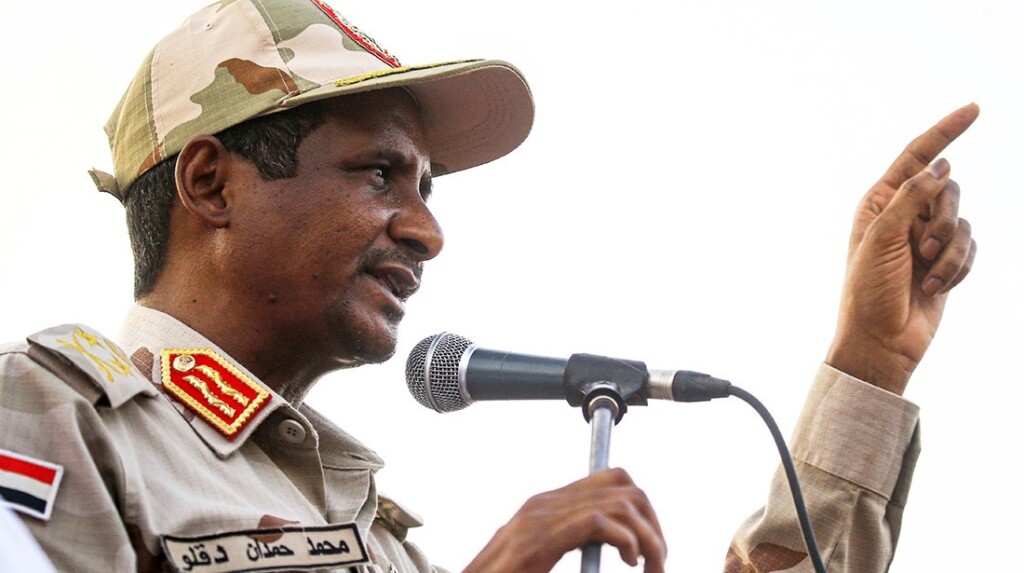
August 12: War-driven hunger kills 132 children in El Gedaref. Dozens of people are killed in South Darfur tribal clashes. The SPLM-N El Hilu attacks an army site in Dalami in South Kordofan. A West Darfur community leader reports 30 hidden mass graves in El Geneina. Security authorities in El Gezira cancel the Land of Weapons seminar, organised by the No to Women’s Oppression Initiative.
August 13: The Darfur regional government is working to open humanitarian corridors, in collaboration with the Chadian government. RSF commander Hemedti announces the establishment of the Sudan Agency for Relief and Humanitarian Operations (SARHO). The SAF-RSF fighting in Nyala leaves ‘dozens dead’.
August 14: Attacks, clashes, and landmine blasts are reported from West and North Kordofan. Tens of thousands of Sudanese displaced waiting for an Egyptian visa in Wadi Halfa lack drink, food, and cash.
August 15: UN OCHA says that more than four million people in Sudan have fled their homes since April 15. People in Kadugli are facing dire humanitarian situation. 17 Sudanese media institutions and press organisations, including Radio Dabanga, call on Sudanese political groups and civil society to protect journalists and engage in post-conflict initiatives. The SAF and the RSF promptly replied.
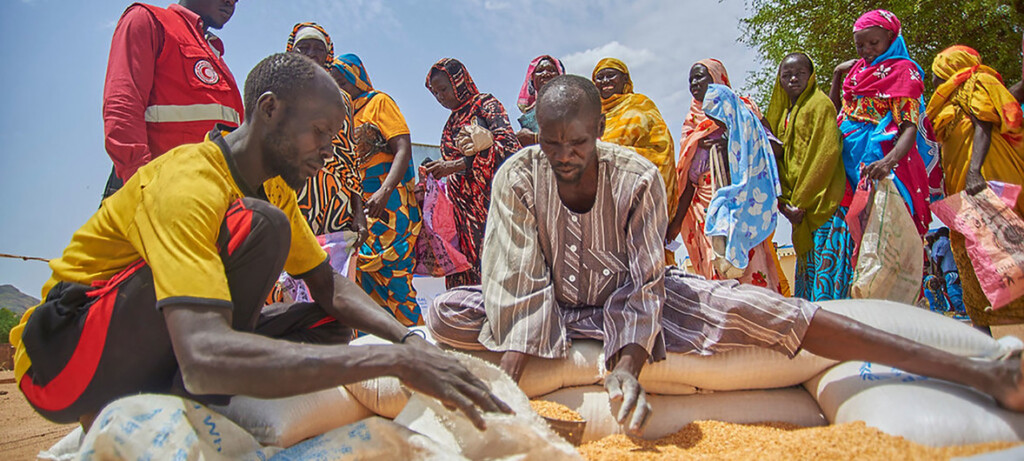
August 16: Civil aviation resumes in eastern Sudan. Shelling persists in Khartoum and Nyala. Sudanese refugees in Ethiopia suffer from a lack of food and medicines. The government in Port Sudan has reportedly provided 3,000 tonnes of food to Darfur refugees in Adré in Chad.
August 17: The ongoing SAF-RSF fighting in Nyala has left ‘countless dead and wounded’.
August 18: Heavy battles continue in the South Darfur capital. More people flee El Fasher and neighbouring areas in North Darfur.
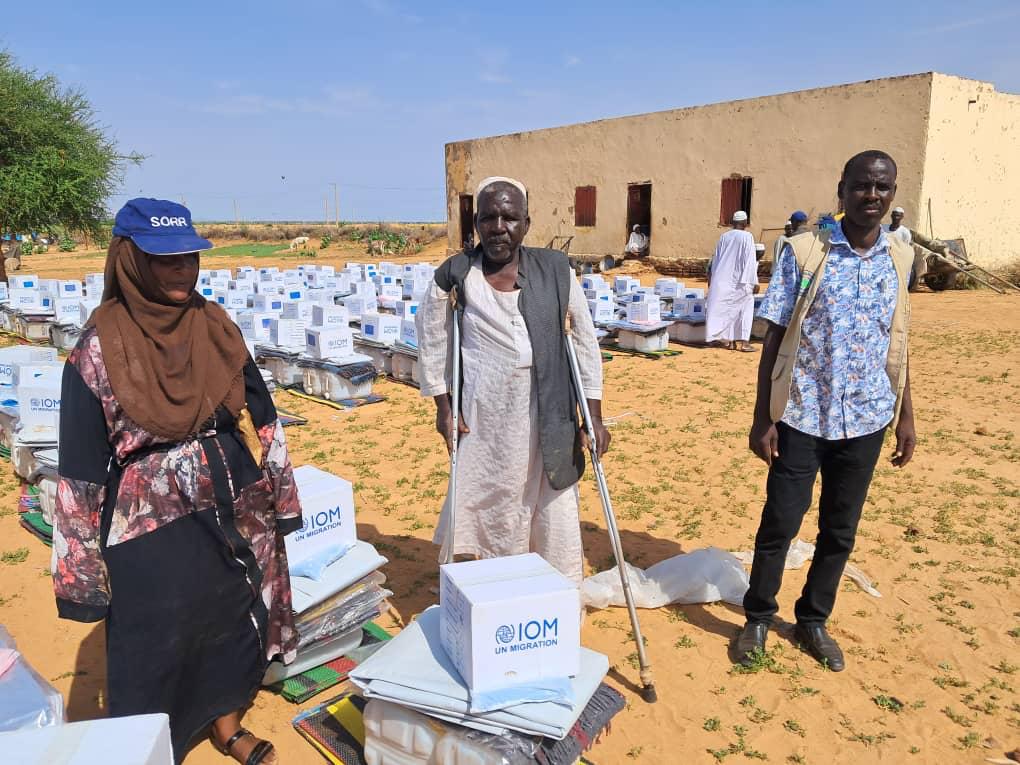
August 19: Military Intelligence detains more than 20 communists in Ed Damazin, capital of Blue Nile region.
August 20: At least 11 are killed in ‘fiercest battles yet’ in Khartoum and Omdurman.
August 21: The Darfur Bar Association reports the presence of children among army and RSF fighters in battles in Khartoum.
August 22: The continued battles deepen civilian suffering in North and South Darfur. At least 40 people sheltering under a bridge in Nyala, capital of South Darfur, are killed by a missile. Darfur farmers and the Famine Early Warning Systems Network (FEWS NET) warn that war, poverty, and poor rainfall endanger Sudan’s agricultural season. El Shajara in west Khartoum faces a ‘mass exodus’ as fierce fighting continues. Activist Mohamed Adam aka Tupac is ‘tortured again’ in police custody in Atbara in north Sudan. The African Union plans to organise a preparatory meeting for a Sudanese-Sudanese dialogue in September.
August 23: UN OCHA reports that about 4.5 million people have fled their homes since mid-April. At least 498 children died from hunger in the country. Measles and other diseases are spreading in the country. Darfur activists accuse the RSF of recruiting child soldiers. A Sudanese financial analyst predicts a 70 per cent drop in the country’s revenues.
August 24: Gen El Burhan leaves the General Command in Khartoum, visits the main military base in Omdurman, and proceeds to Atbara in River Nile state.
August 25: UN Emergency Relief Coordinator Michael Griffiths says that war and hunger could destroy Sudan. USA calls on the RSF to declare ‘zero tolerance for sexual violence’.
August 26: Dire humanitarian conditions are reported from shelter camps in eastern Sudan and eastern Chad.
August 27: The SAF-RSF clashes in camps for displaced people around Zalingei in Central Darfur leave more than 200 dead. A joint rebel force arrives in Nyala to protect people trapped in the city.
Fighting in Khartoum’s El Shajara causes a ‘humanitarian catastrophe’.
Tribal fighting in South Darfur’s Kubum continues despite multiple interventions.
August 28: Chadian journalist Adam Osman describes the conditions in the Adré and Abéché refugee camps near the border with Sudan as “harsh”. Displaced in Ed Damer, capital of River Nile state, are short of food and shelter.
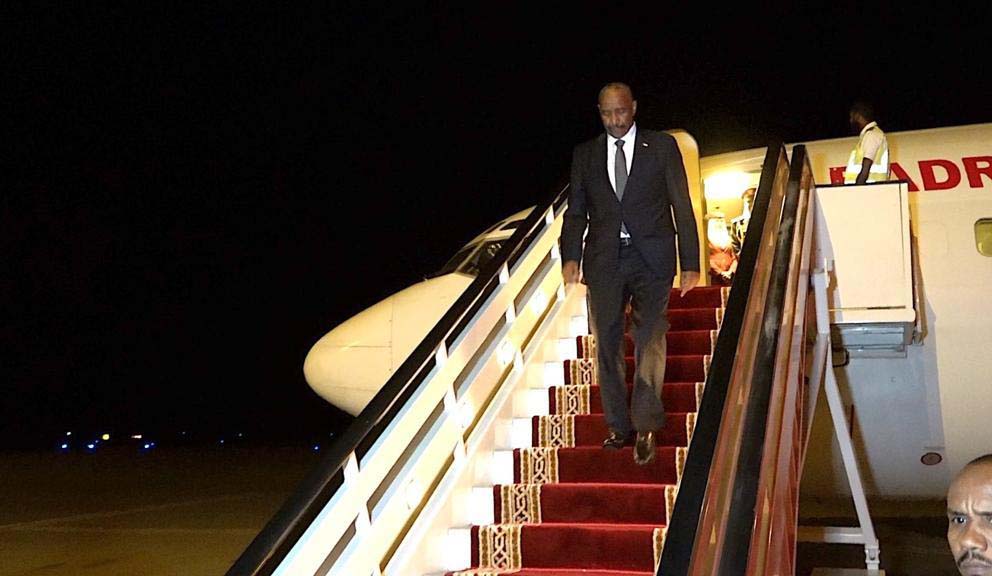
August 29: El Burhan arrives in Cairo for talks with the Egyptian president. A group of political activists have put forward ‘a national vision’ to stop the war and establish a new nation on a broad grassroots base that ‘is already working effectively’.
August 30: RSF-SAF clashes rage across Sudan, countless are killed and injured. The SPLM-N El Hilu attacks an army site near Dalami in South Kordofan. At least seven women are held in Ed Damazin, Blue Nile region as they protested enforced disappearances. The criminal court in Atbara releases activist ‘Tupac’. RSF units and other armed groups are imposing hefty levies on the roads connecting North Kordofan with West Kordofan. The acting Ministry of Interior Affairs in Port Sudan announced the resumption of passport issuance in nine of the 18 states in the country.
August 31: Large parts of the Central Darfur capital Zalingei resemble a ‘ghost town’. Battles continue in Sudan. UN OCHA reports that at least 4.8 million people fled their homes since the start of the war.
September: The fierce fighting in Khartoum continues unabated. Dozens of people are killed by airstrikes. New armed groups appear in Khartoum, fighting alongside the army against the RSF. UN Secretary-General António Guterres warns of the danger of all-out civil war in Sudan. El Burhan continues his tour to neighbouring countries. UN Special Representative for Sudan Volker Perthes resigns, following repeated pressure from the Sudan junta to do so. The UN Under-Secretary-General for Political and Peacebuilding Affairs, international organisations but also Sudanese farmers and tribal leaders warn of an imminent famine in Sudan if political inaction persists. Malaria, dengue fever, and cholera are rapidly spreading in the country, as Medics ‘sound the alarm’ on the rapid spread of cholera, dengue fever, and measles.
September 1: A group of 117 Sudanese, regional and international human rights organisations call on the UN Human Rights Office in Geneva to investigate abuses committed by ‘all parties’ in Sudan. More than 50,000 displaced people endure ‘near-siege conditions’ in South Kordofan.
September 2: Airstrikes kill 20 people in El Kalakla in southwest Khartoum.
September 3: SPLM-N El Hilu renews its attacks on Kadugli. Emergency Lawyers report a record number of RSF and SAF detention centres in Khartoum. In Nyala, human rights defenders are targeted by militant groups.
September 4: Continued heavy fighting in Khartoum leaves dozens of people dead. Members of both the RSF and SAF are accused of plundering homes. El Burhan meets with South Sudan President Salva Kiir Mayardit in Juba. Hemedti says that the RSF is not seeking control over Sudan. Civil registry offices in ‘safe Sudanese cities’ witness large crowds of people seeking to obtain a passport.
September 5: The UN Special Advisor on the Prevention of Genocide condemns ‘the identity-based violence’ in several parts of Sudan.
September 6: RSF continues attacking army sites in Khartoum. The USA sanctions the RSF deputy commander over ‘human rights abuses’. El Burhan issues constitutional decrees that officially dissolve the RSF and abolish the 2017 RSF Law. The IGAD Quartet for Sudan (Kenya, Ethiopia, South Sudan and Djibouti) urges immediate action to stop the war. The US envoy to the UN promises Darfur refugees in eastern Chad to ‘prevent new mass atrocities’.
September 7: The Sudan Democratic Lawyers Front accuse the acting government in Port Sudan of spending money on new buildings, while millions of displaced in the country have not received aid.
September 8: The exchange rate of the US Dollar against the Sudanese Pound records a significant increase following a rise in the demand.
September 9: SAF-RSF fighting in El Fasher, capital of North Darfur, leaves 30 dead.
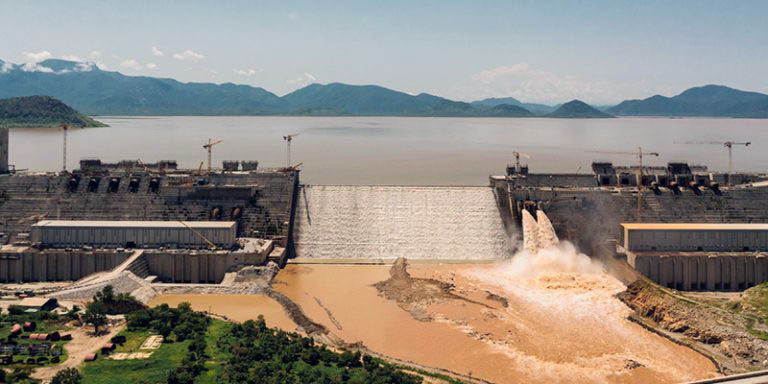
September 10: More than 35 people are killed in an airstrike on a market in southern Khartoum. The aftermath of the airstrike ‘turned the Bashair Hospital into a bloodbath’. Sudanese experts decry Ethiopia’s 4th filling of the Renaissance Dam (GERD) as a ‘water bomb’.
September 11: Five people are killed in heavy shelling in Omdurman. REDRESS organisation and the SOAS Centre for Human Rights Law report mounting evidence of war crimes in Sudan. The Central Bank of Sudan (CBoS) will resume working via the Total Instant Settlements System (Siraj), making the system available to all banks effective today. The war ‘causes a daily economic loss of $80 million’. Doctors in Nyala and Um Rawaba sound alarm over closed and partly working hospitals. Sudanese refugees in Ethiopia are facing a cholera outbreak and harsh asylum procedures. El Burhan continues his tour to neighbouring countries and visits Eritrea.
September 12: Violent clashes continue in Khartoum. At least 30 are killed in a cattle market in Khartoum North. Neighbourhoods in Nyala are littered with explosive remnants of the RSF-SAF battles in the city. OHCHR calls on warring generals to stop fighting. Military Intelligence continues to detain people.
September 13: At least 40 people are killed in aerial bombardments in Nyala. The RSF says the airstrikes are ‘ethnically motivated’. ‘Persona non grata’ Volker Perthes resigns as UN Special Representative for Sudan. More than 50 human rights and humanitarian organisations say in an ‘open letter’ that ‘Sudan is no longer at the precipice of mass atrocities – it has fallen over the edge’. El Burhan arrives in Turkey for a meeting with President Recep Tayyip Erdoğan.
September 14: RSF Commander Hemedti strongly denounces the ‘creation of an alternative capital’ in Port Sudan and threatens to set up ‘a genuine civilian authority’ in Khartoum. The US State Department calls on the two warring parties to comply with their obligations under international humanitarian law.
September 15: Thousands of Sudanese at the border with Egypt await a visa for months now.
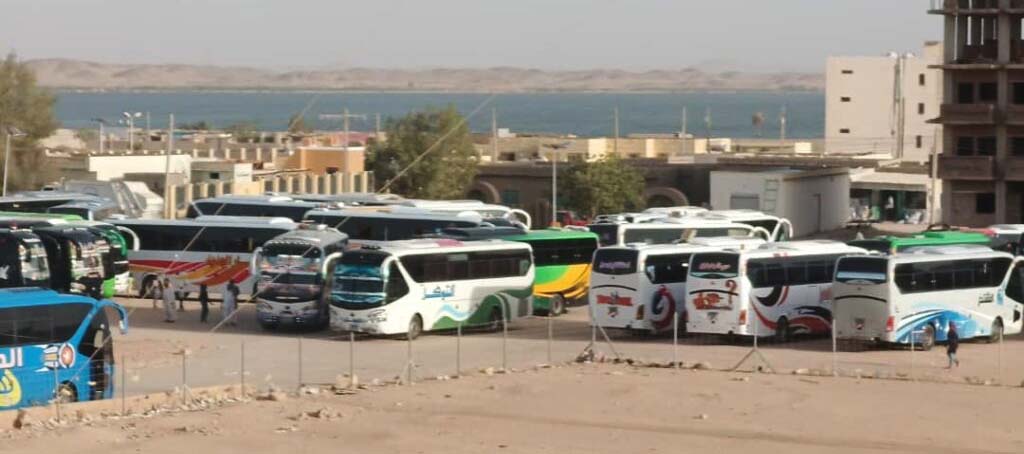
September 17: Fierce fighting continues in Sudan capital. The RSF resumes its attacks on army units in El Obeid. Displaced in Jebel Marra areas under control of the Sudan Liberation Movement led by Abdelwahid El Nur (SLM-AW) suffer as Darfur is hit by heavy rainfall. Malik Agar, deputy chairperson of the Sovereignty Council, says that a new cabinet will be announced in Port Sudan at the end of September. Following a visit to Uganda, El Burhan plans to travel to Saudi Arabia. The number of dengue fever cases is still rising in Sudan.
September 18: According to economist Kamal Karrar the prolonged war has caused the country’s overall economic collapse. The Ministry of Health in Port Sudan will deal with all pharmaceutical aid coming from abroad. Continued shelling in Khartoum forces more residents to flee. The RSF continue its siege on El Obeid which is already witnessing large shortages of basic consumer goods. Army soldiers and militant tribesmen are targeting suspected SPLM-N supporters in Blue Nile region.
September 19: The situation in Zalingei and surrounding camps is extremely dire after new SAF-RSF clashes. RSF is arbitrarily detaining people in the devastated city. Hospitals in El Fasher, North Darfur, are overwhelmed as malaria and dengue fever surge. The sultan of the Masalit sounds alarm about hunger in West Darfur. UN agencies warn of a ‘malnutrition and measles catastrophe’ in Sudan.
September 20: A UN chief warns that 6.3 million people in Sudan will face famine if political inaction persists. Battles continue around the SAF General Command in Khartoum. Hundreds of men in RSF uniforms who recently arrived in Omdurman are plundering homes.
September 21: UN Secretary-General António Guterres warns of the danger of all-out civil war in Sudan. The deadly conflict is discussed on a high-level session on the side lines of the current UN General Assembly. Violent clashes persist in Khartoum and Nyala. South Kordofan traders resort to the South Sudanese Pound as the banks in the state are closed.
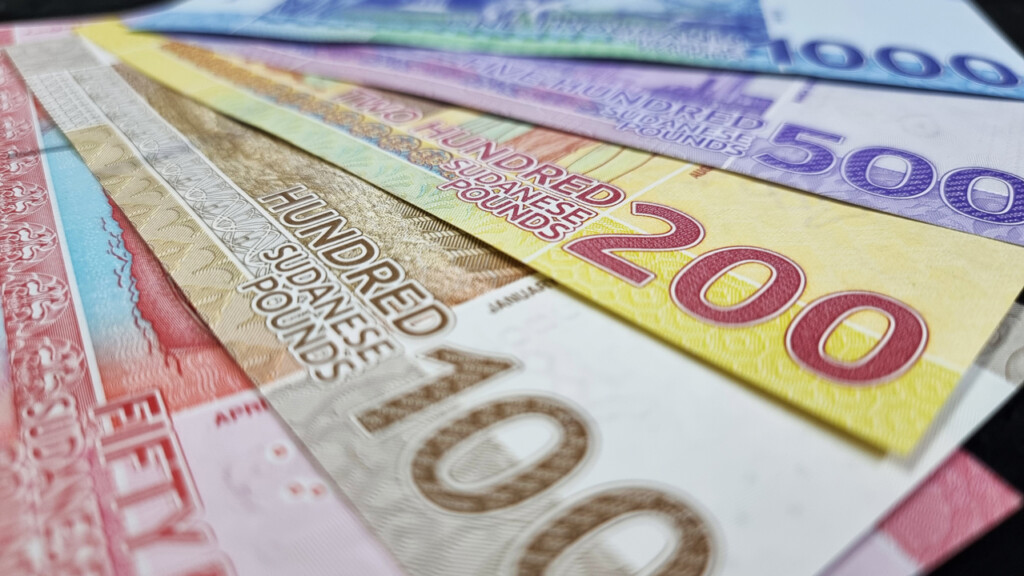
September 23: Military Intelligence condemns ‘RSF forex speculators’ for driving up hard currency rates. Arbitrary detentions by the RSF and SAF continue. El Burhan, returning from New York, holds an ‘unscheduled meeting’ with Ukraine’s President Volodymyr Zelensky, in Ireland. On his arrival in Port Sudan, he meets several foreign delegates. Sudan, Egypt, and Ethiopia resume negotiations on GERD.
September 24: Continued fighting, rapes, and robberies are reported from several parts of the country. Dengue fever, cholera, and measles are spreading rapidly in Sudan.
September 25: Farmers in Darfur warn of impending famine as the agricultural season falters. The Arab Tribes Native Administration warns of a new outbreak of violence in El Geneina, capital of West Darfur. The authorities in Kadugli reportedly bar the distribution of aid to the displaced in the city.
September 26: The Sudanese Pound ‘collapses’ against hard currencies. The CBoS limits bank transfers. Sudan’s acting FA Minister discusses with his Nigerien counterpart the presence of RSF ‘mercenaries’ from Niger in the country. New armed groups appear in Khartoum, fighting the RSF alongside army troops. Medics ‘sound the alarm’ on cholera and dengue fever.
September 27: Khartoum remains ‘under constant shelling’. The army launches a new attack on SPLM-N El Hilu positions in Kadugli.
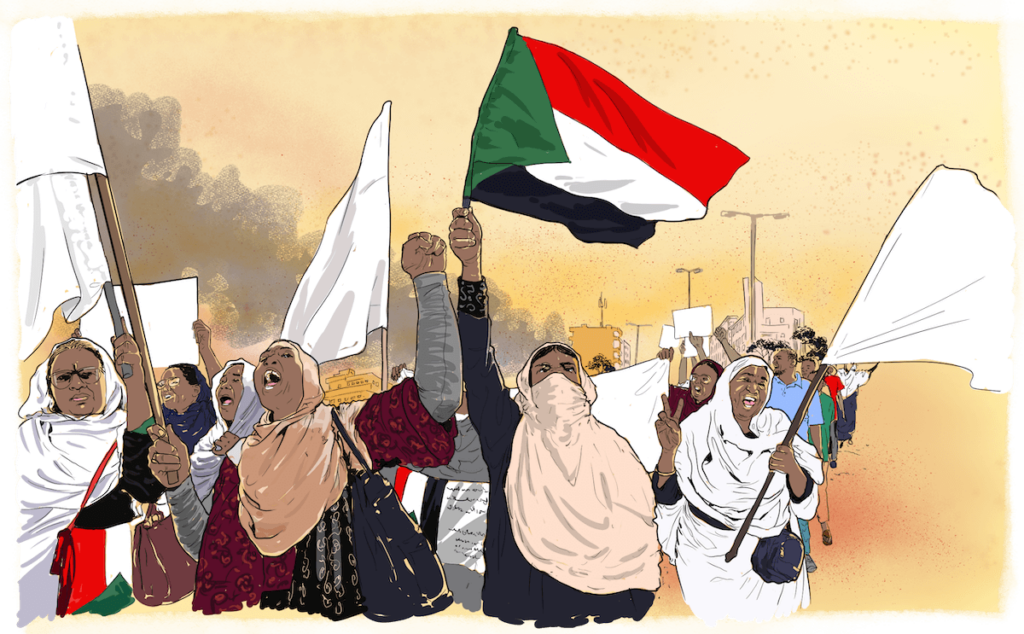
September 28: The US State Department imposes sanctions on Ali Karti, head of the Islamic Movement in Sudan and other Islamists, in addition to two companies affiliated with the RSF. The Darfur Bar Association warns that the RSF are reinforcing their troops in the ‘already war-torn western region’. Sudanese revolutionaries join army ranks to ‘expel RSF from Khartoum’. Floods in Berber in northern Sudan are spreading large quantities of toxic mining waste over the area.
September 29: The Sudan Women in the Diaspora for Ending the War (SWDEW) organises a conference in London on empowerment and justice for Sudanese women.
September 30: Activists exchange anti-war and anti-racist efforts at the Sudan Solidarity conference, organised by the MENA Solidarity Network, in London.
Previous timelines
Sudan timeline April-June 2020: Covid-19 marks all aspects of life, inflation soars
Sudan timeline January-March 2020: Little relief to the country’s economic, security woes
Sudan timeline October-December 2019: Interim government put to the test
Sudan timeline July-September 2019: Turbulent transformation from tyranny







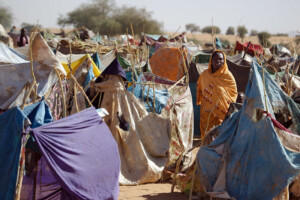

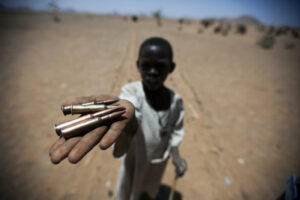

 and then
and then